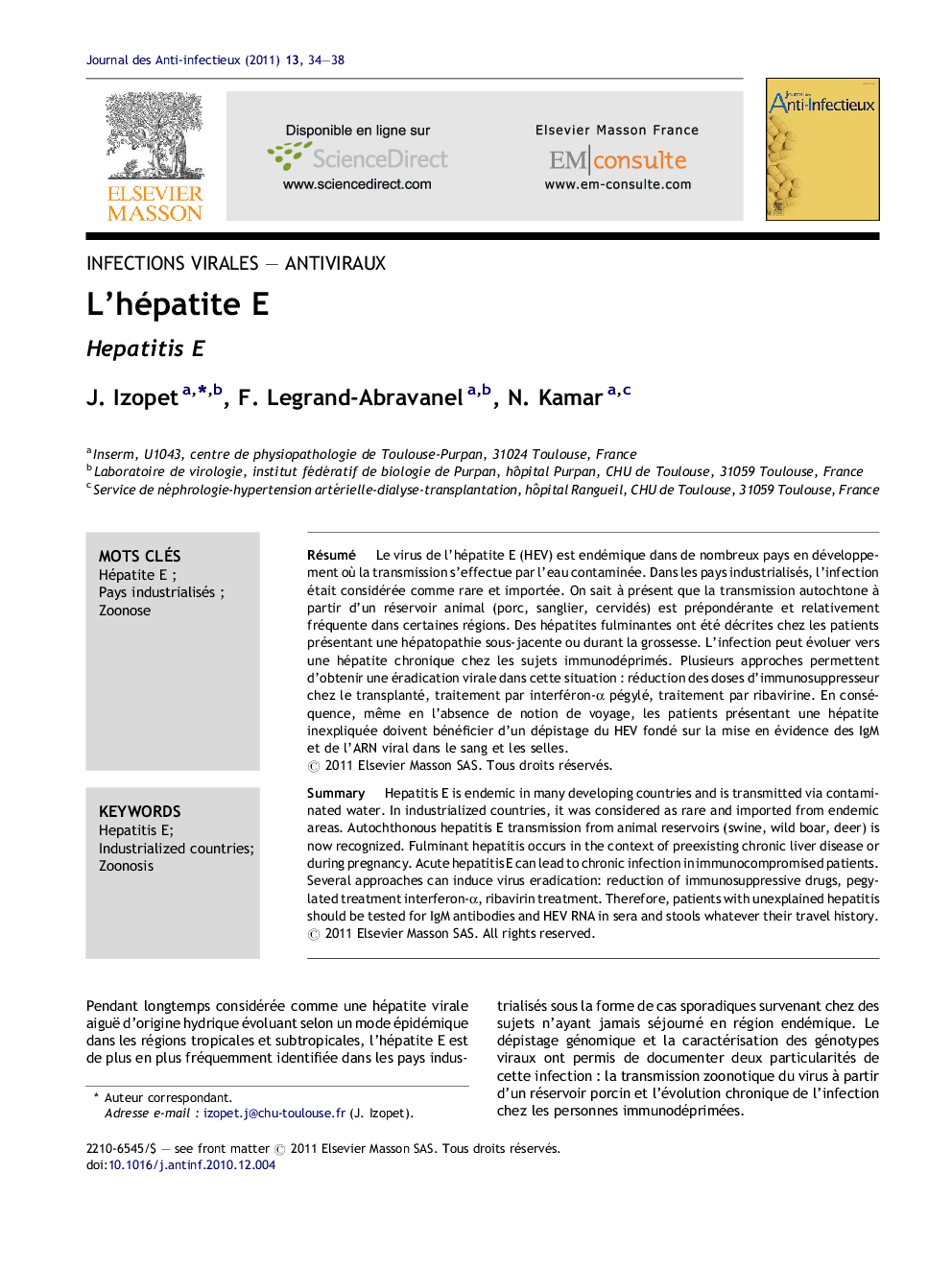| Article ID | Journal | Published Year | Pages | File Type |
|---|---|---|---|---|
| 3405452 | Journal des Anti-infectieux | 2011 | 5 Pages |
Abstract
Hepatitis E is endemic in many developing countries and is transmitted via contaminated water. In industrialized countries, it was considered as rare and imported from endemic areas. Autochthonous hepatitis E transmission from animal reservoirs (swine, wild boar, deer) is now recognized. Fulminant hepatitis occurs in the context of preexisting chronic liver disease or during pregnancy. Acute hepatitis E can lead to chronic infection in immunocompromised patients. Several approaches can induce virus eradication: reduction of immunosuppressive drugs, pegylated treatment interferon-α, ribavirin treatment. Therefore, patients with unexplained hepatitis should be tested for IgM antibodies and HEV RNA in sera and stools whatever their travel history.
Related Topics
Health Sciences
Medicine and Dentistry
Infectious Diseases
Authors
J. Izopet, F. Legrand-Abravanel, N. Kamar,
